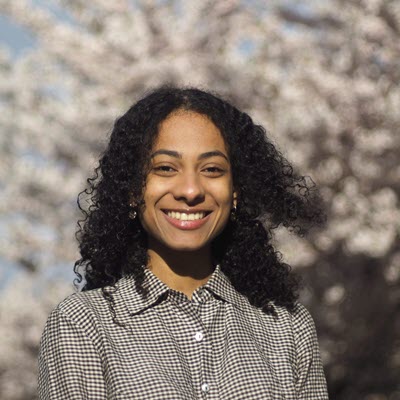For those of you who’ve had the opportunity to watch the film Picture a Scientist, you might recall when Dr. Raychelle Burks, then a professor of analytical chemistry at St. Edward’s University in Austin, Texas, recounts being mistaken for a custodian despite avidly working at her office desk. These kinds of experiences are not uncommon for a woman of colour in academia and only represent a small proportion of the discomfort or discrimination faced. In the film, Dr. Burks confesses that she’s become accustomed to being underestimated and being invisible because of it. Indigenous, Black and People of Colour (IBPOC) are often underrepresented in Science, Technology, Engineering and Mathematics (STEM) fields in higher education. This can result in the feelings of not belonging and isolation.
How can we overcome this?
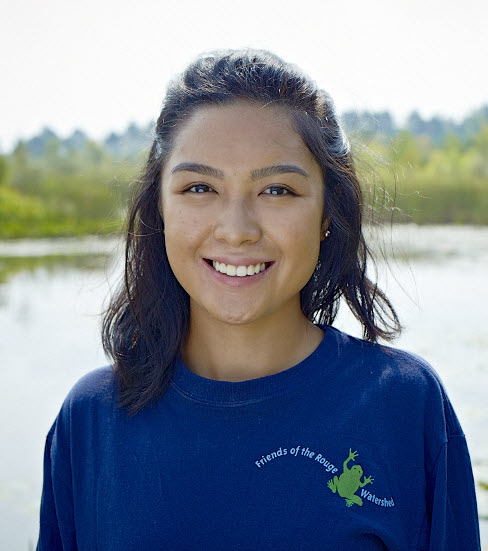
Allison Gacad, BSc, Global Resource Systems
LSI Visiting Research Assistant Allison Gacad (Haney lab) has risen to the challenge. Allison co-organized the Momentum Mentorship Program with her UBC peers, Louisa Hsu and Rachel Cheang during their respective undergraduate degrees. Momentum Mentorship facilitates relationship-building between IBPOC youth and community leaders across Metro Vancouver. Prior to her involvement with the Momentum Mentorship Program, Allison had some experience with creating mentorship spaces for racialized communities. “During the leap from high school to university, I felt that everybody else had access to these professional networks that I didn’t and that’s a product of many different factors such as moving to a new city, identifying as BIPOC myself, et cetera,” Allison elaborates. “I thought about if I were back at high school, what I would want to know before going to university.”
As a result, Allison and some of her high school cohort decided to start up a mentorship program. Acting as mentors themselves, they could equip the current high school students, all of whom belonged to the Indigenous, Black and person of colour demographic, for the transition to university. Allison brought these ideologies with her as she joined forces with Rachel and Louisa who were part of a relatively new UBC AMS club called CAPACity. This club is a UBC student-led initiative that aims to bring together undergraduate students interested in just and equitable city planning and its various branches. CAPACity acted as the soil in which the seeds of the Momentum Mentorship Program were sown.
With support from the CityHive organization and the UBC Centre for Community Engaged Learning, Allison, Rachel and Louisa ran the Momentum Mentorship Program from July to September 2021. There were mentorship sessions held separately in individual groups comprised of one mentor paired with two mentees. These ran in conjunction with six interspersed program workshops, which included themes such as goal setting, positionality within cities, imposter syndrome and planning for the future.
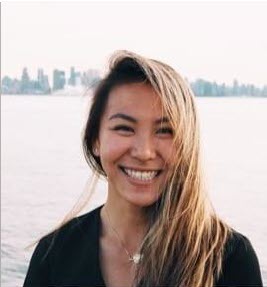
Rachel Cheang, BA Human Geography
“We had a mentor who was working in sustainable agriculture, one was engaged in the creative industry and another one involved in healthcare for marginalized communities for example,” Allison recalls. “Apart from capturing a broad range of professional interests for our mentees, we also paired them based on personal development interests as well.” This ties back to the shared reason these three recent UBC graduates decided to develop this program. The crux of the program is to create a conducive environment for Indigenous, Black and people of colour to explore various interests with mentors and peers who may be able to identify with their lived experiences.
These types of mentorship opportunities are important and a core component to developing “science identity” according to A Review of Themes and Promising Practices in STEM-based Work in Equity, Diversity, and Inclusion by UBC scholars Zakir Suleman, Ashley Welsh and Alice Campbell. The development of a strong science identity is especially important for improving the retention and academic success of underrepresented minority students. Another key part of science identity is creating community spaces for underrepresented minority students to allow for validation and growth.
Dr. Maï Yasue, an equity strategist co-appointed to UBC Skylight (Science Centre for Learning and Teaching) and the UBC Equity & Inclusion Office (EIO) has been addressing this head on.
After taking up her position at UBC, Maï shortly co-organized a space for community reflection and processing within STEM in response to the recent
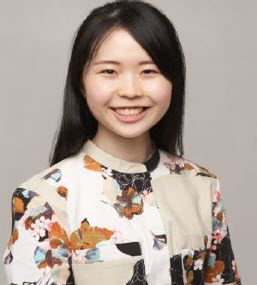
Louise Hsu, BA Environment and Sustainability
shootings in Atlanta, Georgia (at that time) of six female victims of Asian descent. After the incident, Maï reached out to a few women of colour within STEM. “There was that feeling of nobody has talked about this within my department and that sense of isolation,” Maï explains. “There are certain groups of people who are much more impacted and others who are much less affected.” This was Maï’s first step towards creating these types of affinity spaces.
Maï was the listening ear when Zoology’s Equity, Diversity, and Inclusion for Trainees (EDIT) advocated for a community circle with a trained facilitator who can understand the lived experiences of IBPOC trainees and all their intersections. With Maï garnering funding from the Faculty of Science and EDIT’s Melissa Armstrong at the helm, there is now a virtual community circle for IBPOC women and IBPOC non-binary people in the Faculty of Science. These circles are facilitated by registered counsellors who are IBPOC Women themselves from the Healing In Colour organization. There will be sessions for graduate students and post-doctoral fellows and separate sessions for staff and faculty. The hope is that these spaces provide a safe medium for IBPOC Women and IBPOC non-binary people to express how they are impacted by personal experiences, as well as by local and global events. In doing so, participants may recognise their shared experiences and be able to identify with one another.
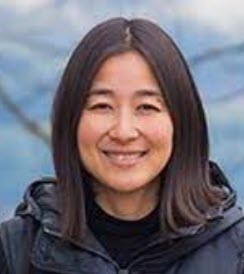
Maï Yasue, PhD
Equity Strategist, UBC Science and EIO
Maï is also working with various members of UBC STEM to create an IBPOC STEM Network. It is designed for IBPOC women and IBPOC non-binary faculty, staff, and trainees to foster community solidarity. “The purpose of this network is to give these groups the feeling that they are reflected and that they do belong in their department,” Maï enlightens. There are four sessions over the academic year with specific themes invited panelists will speak about to encourage conversations and connections amongst all participants. “Let’s showcase these badass women and non-binary folks who are awesome at succeeding as senior graduate students or as faculty members or as staff members and who can be used as role models,” Maï passionately relays.
Mentorship and community spaces are two ways in which our UBC students and staff are supporting Indigenous, Black and People of Colour. These are two practices that can hopefully contribute to an IBPOC sense of identity within STEM, and optimistically, enable their retention and success.
Story by: Sasha McDowell, LSI The/Lifeline’s EDI columnist. Sasha is a PhD candidate in Zoology, in the Gordon lab.
Links:
A Review of Themes and Promising Practices in STEM-based Work in Equity, Diversity, and Inclusion
IBPOC STEM Network – Stories and strategies from women and non-binary faculty, staff and trainees
